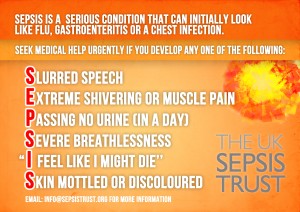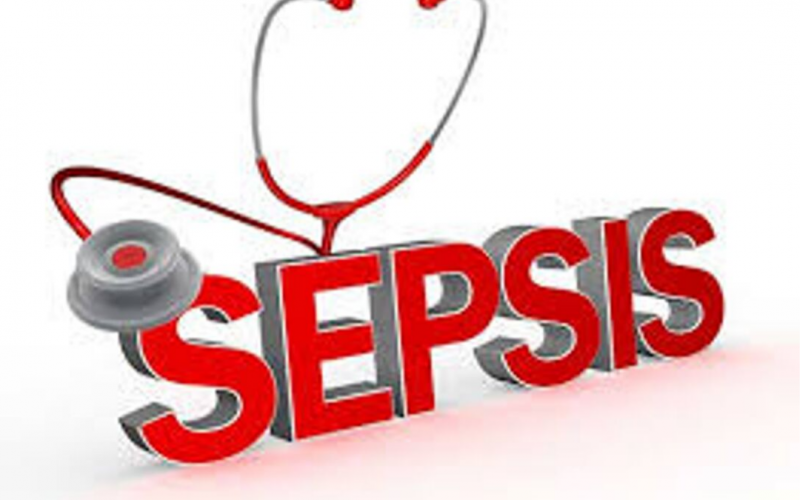Sepsis is a life-threatening condition which can be difficult to diagnose as the early symptoms are similar to flu and other common illnesses. Sepsis affects over 150,000 people and kills over 44,000 people in the UK every year; it is often responsible for brain damage and amputations.
There is a major campaign to raise awareness of possible early signs and symptoms, it is vitally important to recognise symptoms early and seek treatment promptly.
One of the most common ways of developing Sepsis is following an operation or injury where the wound becomes infected. The other is as a secondary infection following an illness such as a chest or severe URTI infection

There are 6 key signs and symptoms that we are encouraged to look out for and they are listed in the chart attached and outlined below
Sepsis can be hard to recognise at first as early symptoms are similar to common illnesses, also similar to Meningitis.
- Look out for:
- Pale, mottled skin.
- Muscle pain and shivering
- Breathlessness
- Failure to pass any urine
- Slurred speech
Plus in older children and adults a sense of ‘impending doom’ or a feeling that they might die.
Seek urgent medical attention, this may mean walk-in centre, A&E or calling 999
Importantly, If you are sent home from the hospital or GP surgery and the casualty gets worse, they should be advised to return.
Summary
If you have concerns about Sepsis and how it may affect your family or friends, the Sepsis Trust have guidance on their website to help you quickly recognise the signs and symptoms in children, they also have resources for health professionals.








